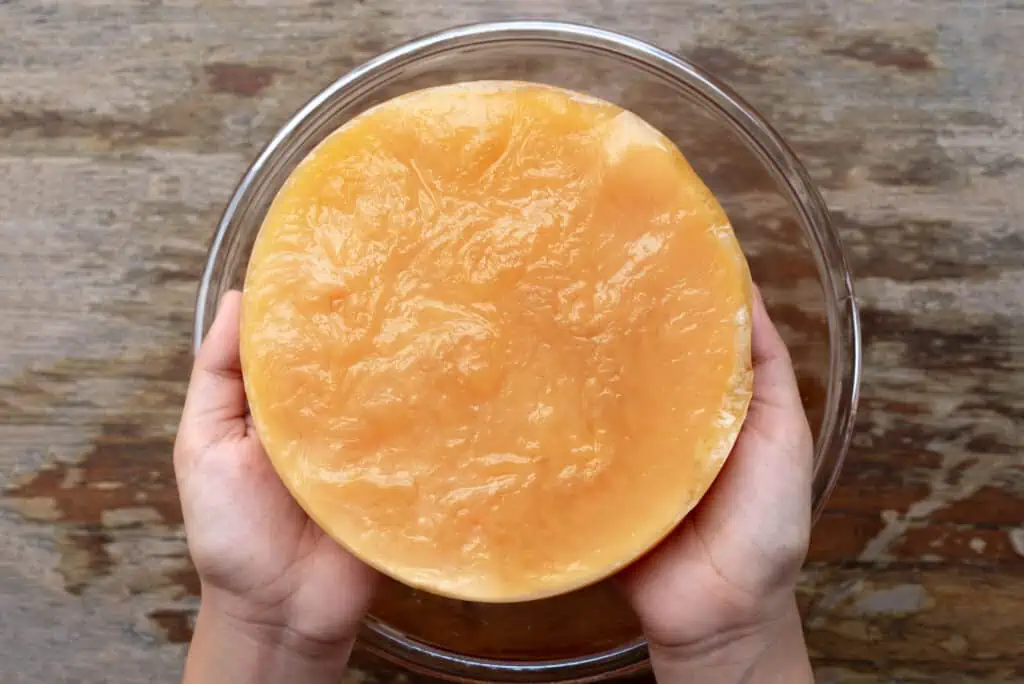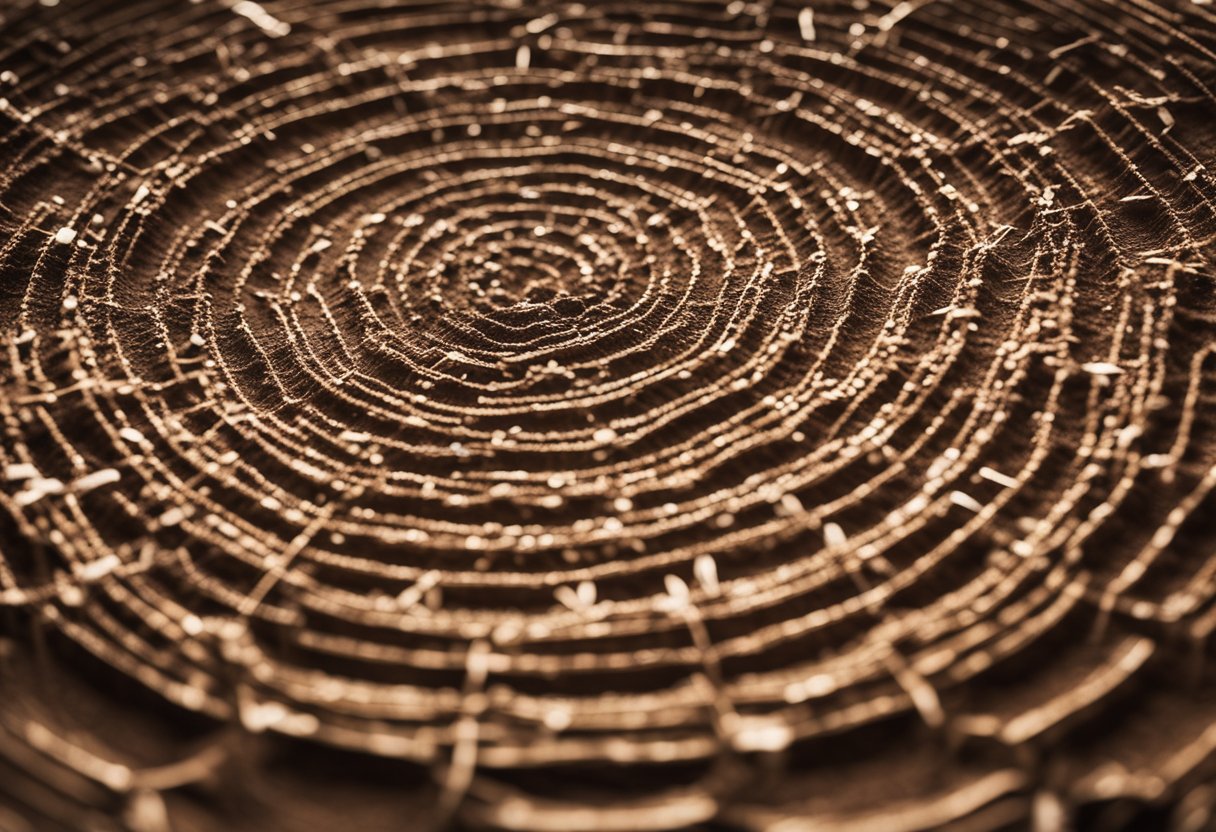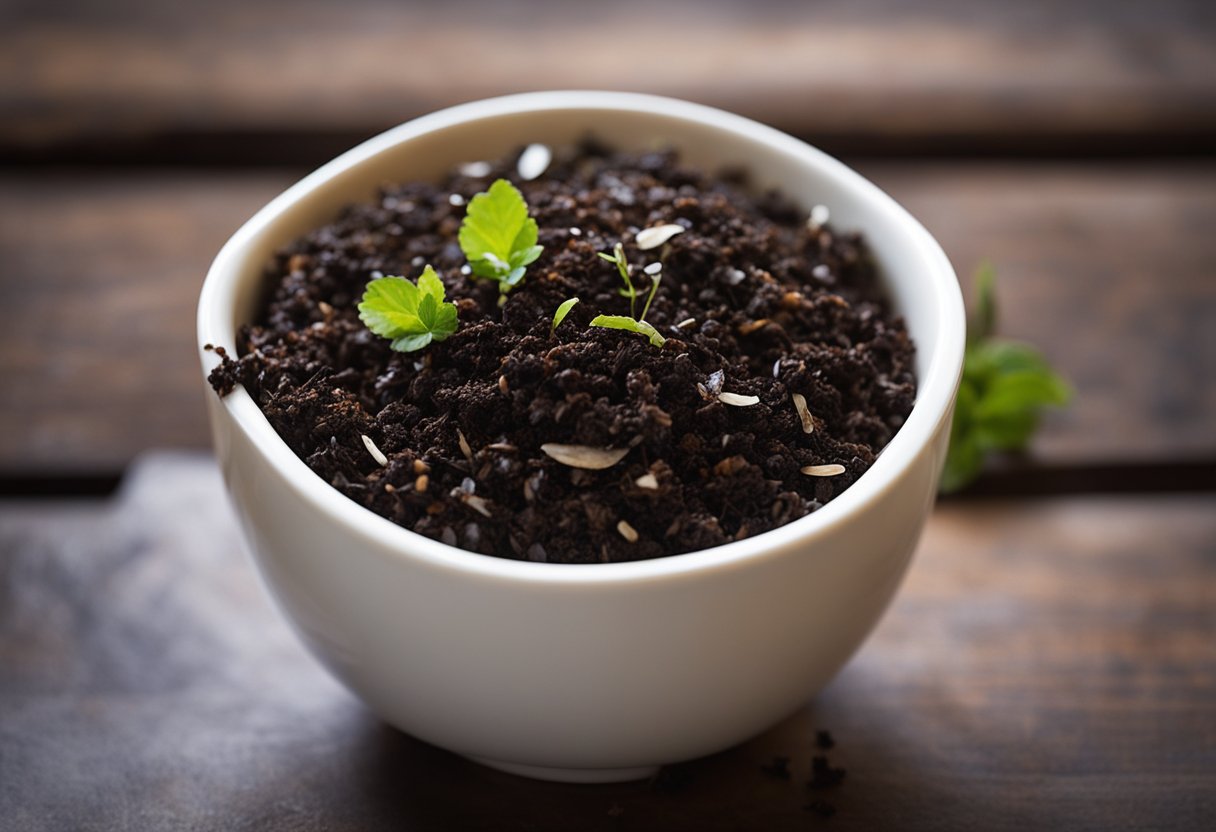As an Amazon Associate I earn from qualifying purchases.
At A Glance
Yes, you can compost Kombucha SCOBY (Symbiotic Culture Of Bacteria and Yeast). SCOBY is organic material and will decompose over time in a compost pile. It falls under the category of “green” compost material, providing necessary nitrogen to help decompose “brown” materials like leaves and twigs. The beneficial microbes present in the SCOBY may also contribute to the microbial activity in the compost pile, aiding in the decomposition process.
Composting is an excellent way to reduce waste while also enriching your garden soil. If you are an avid kombucha drinker, you may have wondered what to do with the extra SCOBYs that accumulate over time. Can you compost kombucha SCOBYs, and if so, how?
The good news is that kombucha SCOBYs are entirely compostable. They are rich in nutrients and beneficial bacteria, making them an excellent addition to your compost pile. However, it is essential to compost them correctly to avoid any issues.

One way to compost your SCOBYs is to chop them into small pieces and add them to your compost bin or tumbler. Alternatively, you can feed them to your animals, as they will break down naturally in the manure. It is essential to ensure that your compost pile reaches a high enough temperature to break down the SCOBYs fully.
What Is Kombucha and Scoby?
Kombucha is a fermented tea that is made from sweetened tea and a symbiotic culture of bacteria and yeast, commonly referred to as a SCOBY. The SCOBY is added to the sweet tea and left to ferment for a period of time. During this time, the yeast and bacteria in the SCOBY consume the sugar in the tea and produce organic acids, vitamins, amino acids, minerals, and antioxidants. The end product is a tangy, effervescent drink that is enjoyed by many.
The SCOBY is a key component in making kombucha. It is a living culture that resembles a rubbery, pancake-shaped disk. The SCOBY is responsible for fermenting the sweet tea and producing the kombucha. It is made up of a symbiotic community of bacteria and yeast that work together to create a healthy and thriving culture. The bacteria in the SCOBY produce acetic acid, while the yeast produce alcohol. The acetic acid and alcohol combine to create the unique flavor and texture of kombucha.
To make kombucha, you will need a SCOBY, sweet tea, and a vessel to ferment the tea in. The SCOBY is added to the sweet tea and left to ferment for a period of time, usually between 7-14 days. During this time, the SCOBY will consume the sugar in the tea and produce the kombucha. Once the kombucha is ready, it can be bottled and enjoyed or used in a variety of ways.
Overall, kombucha is a delicious and healthy beverage that is enjoyed by many. Its unique flavor and health benefits make it a popular choice for those looking for a refreshing and nutritious drink. The SCOBY is a key component in making kombucha, and understanding how it works is essential for making great-tasting kombucha at home.
Understanding Composting

Composting is the process of breaking down organic matter into a nutrient-rich soil amendment. It is an environmentally friendly way to dispose of waste and help improve soil health. Composting can be done in several ways, including using a compost bin, vermicomposting, or trench composting.
When composting, it is important to create a balanced mix of “green” and “brown” materials. “Green” materials include food scraps, grass clippings, and other nitrogen-rich materials. “Brown” materials include dry leaves, twigs, and other carbon-rich materials. This balance helps create an optimal environment for microorganisms to break down the materials into compost.
Composting is a sustainable practice that can help reduce the amount of waste sent to landfills and reduce greenhouse gas emissions. When organic matter is sent to a landfill, it decomposes without oxygen, producing methane, a potent greenhouse gas.
Composting SCOBYs is a great way to reduce waste and help improve soil health. SCOBYs are the rubbery, mushroom-like discs that form on top of kombucha tea. They are made up of cellulose, bacteria, and yeast. SCOBYs can be composted in a compost bin or vermicompost, or even ground up and applied directly to the soil. Composting SCOBYs helps create a rich environment for microorganisms and provides valuable nutrients for plants while improving soil texture.
It is important to note that overloading compost with too much SCOBY can lead to an imbalance in the pile, and excess nitrogen from SCOBY can increase acidity levels in compost. If the SCOBY molds, composting it is the only viable solution (when keeping with the zero-waste philosophy).
Overall, composting is an excellent way to reduce waste and improve soil health. Composting SCOBYs is just one small way to contribute to a healthier environment.
Can You Compost Kombucha Scoby?

As a kombucha enthusiast, I often find myself with excess SCOBYs that I don’t know what to do with. One question that frequently comes up is whether or not you can compost kombucha SCOBYs. The answer is yes!
Composting your SCOBYs is a great way to dispose of them in an environmentally friendly manner while also adding valuable nutrients to your soil. The SCOBYs are made up of bacteria and yeast, which can help to balance the pH of your compost and provide beneficial microorganisms to your soil.
When composting your SCOBYs, it’s important to remember that they are high in nitrogen. This means that they can help to speed up the composting process, but they should be balanced out with other materials that are high in carbon, such as leaves or straw.
If you don’t have a compost pile, you can still add your excess SCOBYs directly to the soil of your plants. The SCOBYs will break down over time, releasing valuable nutrients into the soil.
It’s worth noting that if you have a large number of SCOBYs, you may want to consider dehydrating them first. Dehydrated SCOBYs can be ground up and added to your compost or soil as a nutrient-rich fertilizer.
In summary, composting your kombucha SCOBYs is a great way to dispose of them while also adding valuable nutrients to your soil. Just remember to balance them out with other materials that are high in carbon, and consider dehydrating them if you have a large number of SCOBYs.
Benefits of Composting Scoby

Composting SCOBYs is a great way to reduce waste and provide valuable nutrients to your garden. When composted properly, SCOBYs can be a valuable addition to your compost pile or vermicompost. Here are some of the benefits of composting SCOBYs:
- Probiotic-rich: SCOBYs are teeming with beneficial microorganisms that can help improve soil health and plant growth. When composted, these microorganisms can help break down organic matter and create a healthy soil ecosystem.
- Nutrient-dense: SCOBYs contain valuable nutrients like nitrogen, potassium, and phosphorus that can help fertilize your garden. When composted, these nutrients are released slowly over time, providing a steady source of food for your plants.
- Acidic: SCOBYs are slightly acidic, which can help lower the pH of alkaline soils and improve plant growth. When composted, the acidity of SCOBYs can help balance the pH of your compost pile and create a more optimal environment for decomposition.
- Mineral-rich: SCOBYs are also a good source of minerals like calcium, iron, and magnesium. When composted, these minerals are released into the soil and can help improve plant nutrition and growth.
Overall, composting SCOBYs is a great way to reduce waste, improve soil health, and provide valuable nutrients to your garden. Whether you add them to your compost pile, vermicompost, or apply them directly to your soil, SCOBYs can be a valuable addition to your gardening routine.
How to Compost Scoby
Composting scoby is an excellent way to reduce waste and provide valuable nutrients to your garden. Here are some steps you can follow to compost scoby:
- Cut the scoby into small pieces: Before composting, cut the scoby into small pieces to help it break down more quickly. You can use a knife or scissors to do this.
- Add the scoby to your compost pile: Once the scoby is cut into small pieces, add it to your compost pile. You can also add any other organic materials you have, such as food scraps, leaves, or grass clippings.
- Mix the compost pile: To ensure that the scoby breaks down properly, mix the compost pile regularly. This will help to distribute moisture and oxygen throughout the pile, which is essential for the composting process.
- Monitor moisture levels: Scoby needs moisture to break down properly, so it’s important to monitor the moisture levels in your compost pile. If the pile is too dry, add water. If it’s too wet, add more dry materials like leaves or straw.
- Wait for the compost to mature: Depending on the conditions in your compost pile, it may take several weeks or months for the scoby to break down completely. Once the compost is mature, it will be dark, crumbly, and have a rich earthy smell.
- Use the compost in your garden: Once the compost is mature, you can use it in your garden. Spread it around your plants or mix it into the soil to provide valuable nutrients to your plants.
Composting scoby is an easy and effective way to reduce waste and provide valuable nutrients to your garden. By following these simple steps, you can turn your scoby into a valuable resource for your garden.
Other Uses of Excess Scoby
When it comes to excess Scoby, the possibilities are endless. Here are some of the most popular ways to use up extra Scobys:
Make Scoby Jerky
One of the most popular ways to use extra Scoby is by making jerky. Cut the Scoby into strips and toss in your favorite spices and flavorings. Use a dehydrator or place the Scoby strips on a parchment paper-lined sheet tray, cover with a cloth, and leave in an oven overnight with the pilot light on. The result is a delicious and healthy snack that’s packed with probiotics.
Share with Friends
Another great way to use extra Scobys is by sharing them with friends. Give them their own healthy, perpetual kombucha kit. One Scoby, a cup of kombucha, a Mason jar, and a recipe card is all you need to start a conversation and make a friend.
Feed Your Pets
Scobys are also a great treat for your pets. You can dehydrate them and turn them into jerky treats for your dogs or cats. Alternatively, you can add small pieces of Scoby to your pet’s food for an extra boost of probiotics.
Use as Animal Feed
If you have farm animals, you can also use excess Scobys as animal feed. Chickens, in particular, love to peck at Scobys and will happily eat them up.
Make Candy
Use your excess Scobys to make delicious, probiotic treats for your family. Cut Scoby into 1-inch chunks then coat the Scoby pieces into sugar. The result is a chewy, sweet treat that’s good for you.
Use in Recipes
Scobys can also be used in a variety of recipes. You can blend them into smoothies, use them as a base for jun tea, or even add them to your favorite salad for an extra crunch. The cellulose in Scobys also makes them a great thickener for soups and sauces.
Use as a Face Mask
Scobys are also great for your skin. You can use excess Scoby to make a face mask that’s packed with probiotics and other beneficial nutrients. Simply blend the Scoby with honey, oatmeal, or other natural ingredients for a rejuvenating and nourishing mask.
Dispose of Properly
If you can’t find a use for your excess Scobys, make sure to dispose of them properly. Don’t just throw them in the trash, as they can take a long time to decompose. Instead, compost them or add them to your garden as a natural fertilizer. Alternatively, you can also use them to start a Scoby hotel for future use.
Conclusion
In conclusion, composting Kombucha SCOBYs is a great way to reduce waste and nourish your garden. When added to your compost pile, the SCOBYs break down quickly and provide valuable nutrients for plants. However, it’s important to keep in mind that the excess nitrogen from the SCOBYs can increase the acidity levels of your compost and negatively affect its overall quality. Therefore, it’s recommended to add SCOBYs in moderation and balance them with other compostable materials.
If you’re looking for other ways to use your extra SCOBYs, there are plenty of options. You can feed them to animals, use them as a natural cleaning agent, or even make SCOBY jerky. However, if you’re not interested in any of these options, composting is a great way to dispose of your SCOBYs in an eco-friendly way.
Overall, composting Kombucha SCOBYs is a simple and effective way to reduce waste and improve soil health. By following the tips and guidelines outlined in this article, you can successfully add SCOBYs to your compost pile and create a nutrient-rich environment for your plants to thrive.
